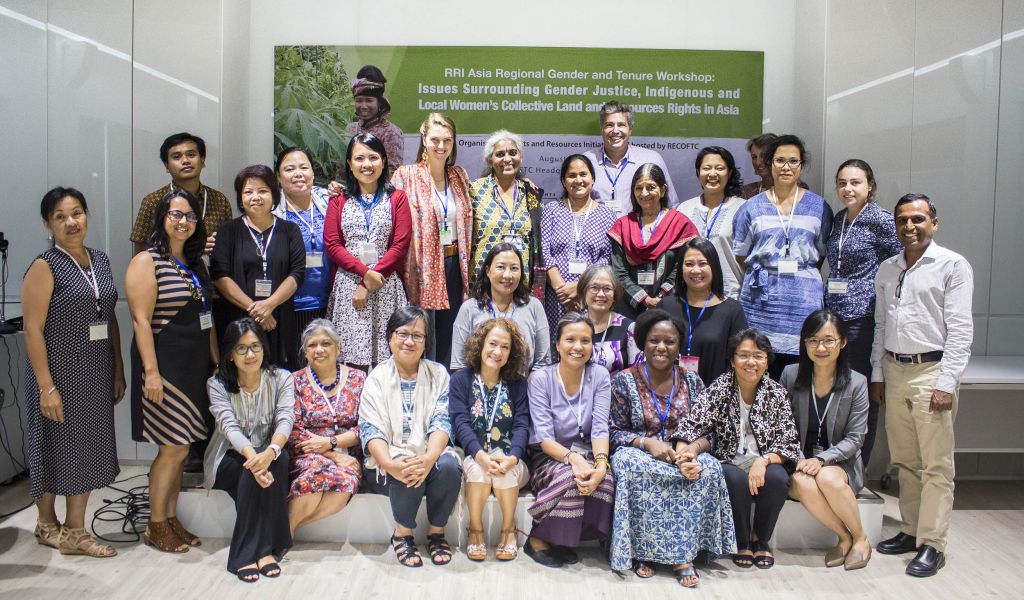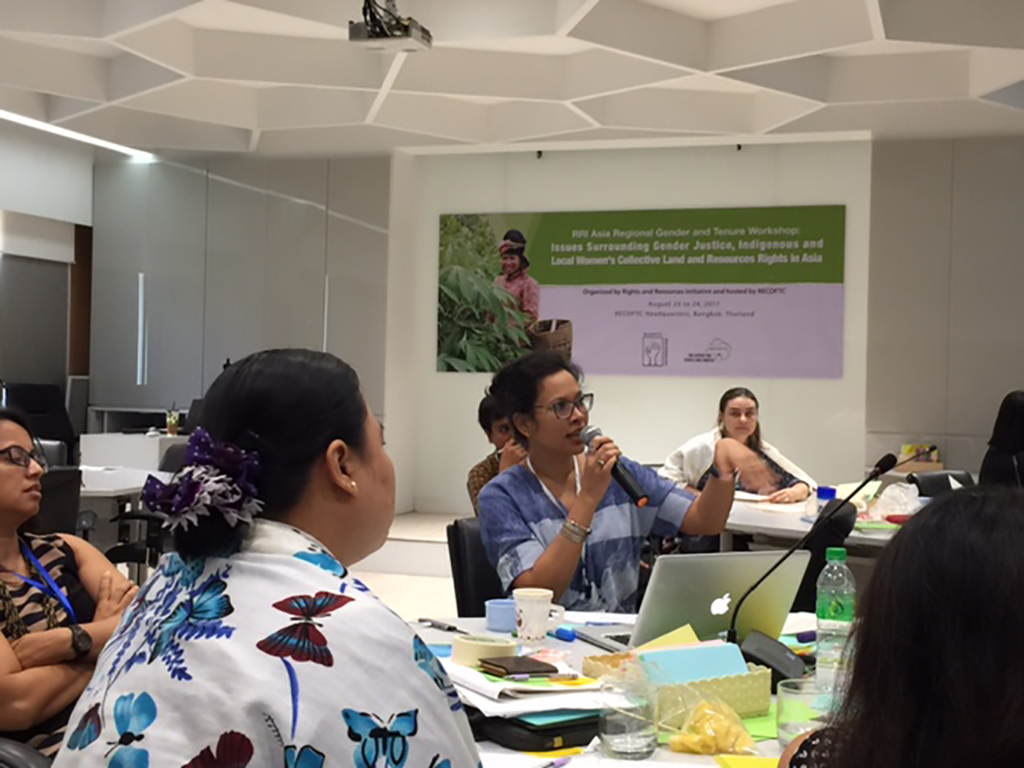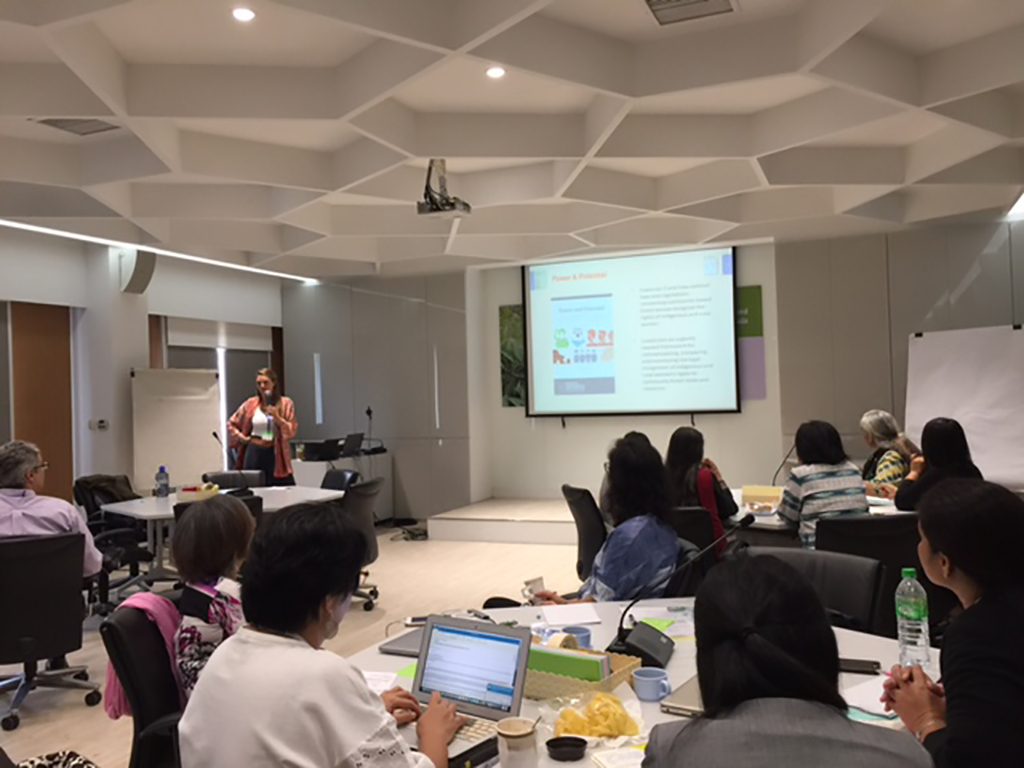Community forestry and collaborative land management systems must do more to protect women’s rights

While there are a number of legal entitlements for women to assert their voices in forest decision-making processes, land rights advocacy groups are finding that collaborative land management systems are not yet doing enough to protect the rights of women. This message was voiced by gender experts from around the Asia and the Pacific region who met 23-24 August for a Rights and Resources Initiative (RRI) meeting, hosted by RECOFTC in Bangkok, on gender and land tenure in Asia.
Despite efforts over decades to raise the bar on women’s empowerment in the natural resource management fields, a recent RRI report - Power and Potential - analyzed national laws and regulations concerning women’s rights to community forests. Of the three regions included in the study, community-specific legal frameworks provided the highest level of protection for women’s community level inheritance but the least amount of rights under national legal frameworks (recognizing women’s rights in a country’s constitution, legislation, policy, regulations and/ or contracts). This means that in the Asia-Pacific region, much more must be done to protect the rights of women. Community forestry (CF) and collaborative land management is just an entry point, and other sectors must be engaged for broader advocacy gains. Further, the voice from community forestry advocates is not yet strong enough to lead to national constitutional reforms, thus awareness-raising and broader coalitions are needed.
To help address this issue, RECOFTC - The Center for People and Forests - is developing the capacities of a new generation of gender champions. RECOFTC’s leadership and capacity development programs are playing a transformative role in strengthening women’s active participation in civil society platforms, where women’s leadership has proven to be a valuable political voice. For example, community forestry has played an important role in enhancing leadership capacities of women in Nepal. In the recent elections in Nepal earlier this year, 22,000 representatives were directly elected to lead local municipalities. Of these, 712 are CF leaders, including 228 women CF leaders, exemplifying how capacity development of CF leaders, including women, is directly linked to leadership roles in government.
This type of targeted training and capacity development has and is encouraging women to serve more effectively at the national, provincial and/or community levels, as well as in universities and key institutions where they work. By providing technical support to organizations, it will be possible to improve the capacity of these organizations to address issues related to gender inclusion and women’s empowerment, both of which will strengthen the organizations themselves. The Center is continuing to strengthen our work to promote gender inclusion and women’s empowerment through both new staffing in our gender program, as well as stronger initiatives to develop women’s leadership skills on the national, provincial and community levels.

These capacity development efforts will not be fully effective, however, if they are not supported by an enabling policy environment that recognizes and values women’s roles and responsibilities. To raise awareness of and advocate for gender equality and women’s empowerment on forestry, natural resource management, and climate change issues, RECOFTC - The Center for People and Forests will facilitate policy analyses, dialogue and networking at the landscape, national and regional levels. Community forestry facilitates strong local and landscape level governance. The participatory decision-making that CF brings at the local level can play an important role in addressing issues of weak governance that often affect forests in the region. The Center will need strong policy analyses, dialogues and a targeted communication and knowledge management strategy to synthesize and disseminate lessons learned to ensure wider reach and impact.

Participants in the recent RRI workshop also discussed the importance of collective contributions to the Sustainable Development Goals (SDGs), which are a universal call to action to end poverty, protect the planet and ensure that all people enjoy peace and prosperity. All of the participants in the workshop recognized the importance of contributing to the SDGs but also the ability to go beyond standard reporting to call for more action, better monitoring and institutional reforms beyond just the metrics. Through supporting the SDGs, our collective vision is to empower local people, especially women and marginalized groups, to be more equitably engaged in the sustainable management of forested landscapes. The Center stands ready to work with partners in and beyond its focal countries to achieve the SDGs on gender equity and women’s empowerment in the natural resource management fields so that our local partners may address issues related to gender inclusion and women’s empowerment, both of which will strengthen organizations themselves.
For information on RECOFTC’s work on gender, see: https://www.recoftc.org/basic-page/social-inclusion-and-gender-equity

